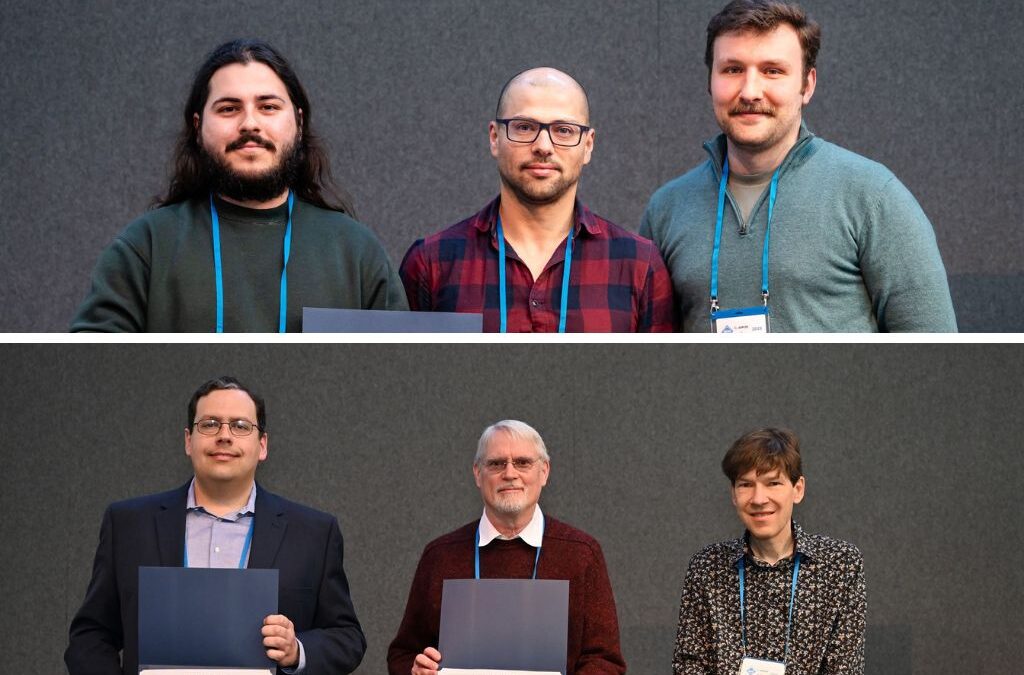
INESC-ID researchers win awards at EuroSys 2025
Two papers co-authored by INESC-ID researchers, professors, and students from the Department of Computer Science and Engineering (DEI) at Instituto Superior Técnico were distinguished at EuroSys 2025, a leading European conference in computer systems, held in Rotterdam from March 30 to April 3.
The paper “HawkSet: Automatic, Application-Agnostic, and Efficient Concurrent PM Bug Detection”, by João Oliveira and João Gonçalves, both PhD students in the Doctoral Program in Computer Engineering (PDEIC), and Miguel Matos, INESC-ID researcher, DEI Professor and Big Era Chair team member, received the prestigious EuroSys Gilles Muller Best Artifact Award.
The work presents HawkSet, an innovative tool for detecting concurrent bugs in Persistent Memory (PM) systems. PM enables the development of fast, persistent applications without relying on expensive HDD/SSD-based I/O operations. However, due to the volatile nature of caches and CPU memory reordering for performance optimization, developers must use low-level instructions to ensure data consistency in case of crashes—especially in concurrent environments, where new classes of bugs can emerge.
HawkSet stands out for being automatic, application-agnostic, and highly efficient. It employs lockset analysis and automatic binary instrumentation to detect all bugs found by state-of-the-art tools, as well as seven previously unknown bugs. It achieves this without requiring application-specific knowledge, debugging artifacts, or guided executions. HawkSet also delivers significant performance improvements—up to 159x faster detection—and consistently uncovers hard-to-reach bugs that depend on rare interleavings.
Luís Pedrosa (DEI/INESC-ID) was also honored, alongside his co-authors, with the EuroSys Test of Time Award for the paper “Large-scale cluster management at Google with Borg.”
The paper describes Borg, Google’s cluster management system that runs hundreds of thousands of jobs from thousands of applications across clusters with tens of thousands of machines.
Borg achieves high resource utilization through a combination of admission control, efficient task-packing, over-commitment, and process-level performance isolation. It supports high-availability applications with runtime features that reduce fault-recovery time and scheduling policies that lower the risk of correlated failures. For users, Borg offers a declarative job specification language, integration with name services, real-time monitoring, and tools for system analysis and simulation.
EuroSys, the European Conference on Computer Systems, is one of the most prestigious conferences in the field of systems research—particularly relevant to the Distributed, Parallel and Secure Systems (DPSS) research area at INESC-ID.
